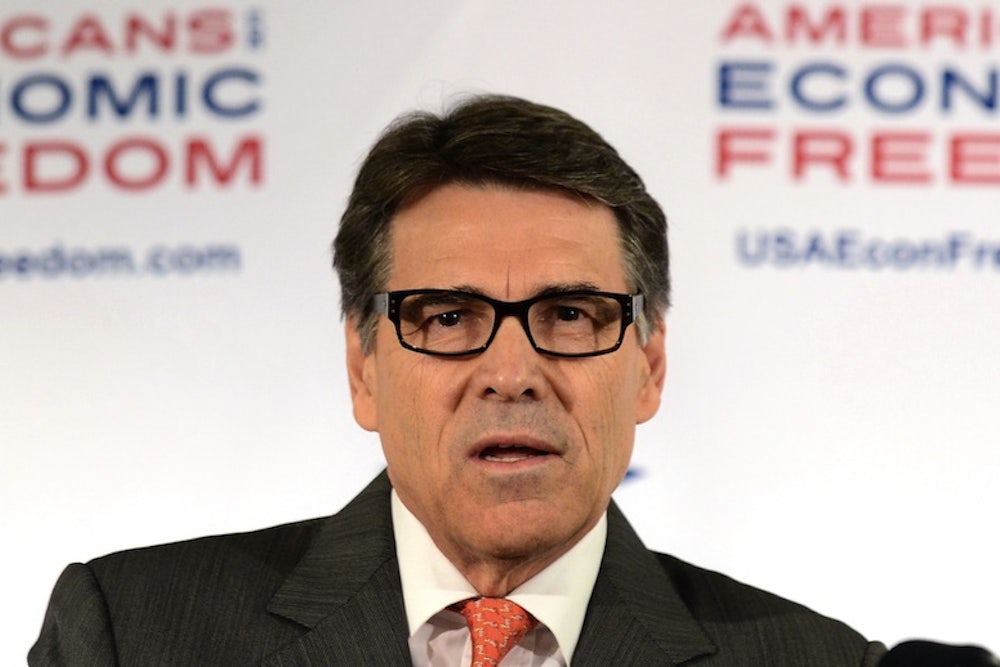Rick Perry's run for the Republican presidential nomination was, arguably, doomed when he couldn't count to three. His cowboy good-looks, suddenly, looked like a reinforcement of the idea that he wasn't the brightest lightbulb, rather than a selling point of the Perry candidacy. Is it any wonder that since the summer, Perry's beeen appearing in public wearing hipster-professorial glasses? Now this looks like a man who could remember at LEAST ten pieces of information. Sure, maybe the Texas governor's contacts have begun to irritate him, and the explanation for the new frames is as simple as that. Or maybe a consultant or two mentioned that a little visual gravitas might not hurt, a quick optical optics-fix on the principle that it's easier to fail a vision test than to pass an IQ test. (Not every pair works: most politicians would probably do well to steer clear of Google glass.)
After all, one could plausibly argue that a certain, significiant part of Sarah Palin's surprising rise had something to do with her Tina Fey glasses. Australia's prime minister recently started wearing smart-looking glasses, sparking a Twitter account and conspiracy theories that they were fakes, meant to lend her seriousness. Actors have long understood the importance of eyewear. Clark Kent built a whole second life around it. I'll cop to having a Twitter picture that shows me in glasses, which I usually wear only for driving and at the movies; I'd like to think that I picked it for the simpler, even more shallow reason that I thought it flattering — but I'm not so sure, in retrospect. The first time I wore my glasses to the office, a boss told me they made me look smart. It's bit simplistic to say that glasses make people think the wearer looks smart, but sometimes in politics, the answer is right in front of your nose. You don't have to be wearing a pair of tortoise-shells to see it.
Noreen Malone is a staff writer at the New Republic.
